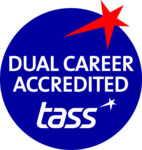Explore by career
Purpose built facilities

Take a tour of our facilities
Our next open events are
-
Foundation Learning Open Evening - February 2026 (SEND)
Wednesday 4 February 2026, 5pm - 7pm -
Moulton Campus - Open Event March 2026 (Further and Higher Education)
Saturday 14 March 2026, 9am - 12noon -
Moulton Campus - Open Event June 2026 (Further and Higher Education)
Saturday 13 June 2026, 9am - 12noon







